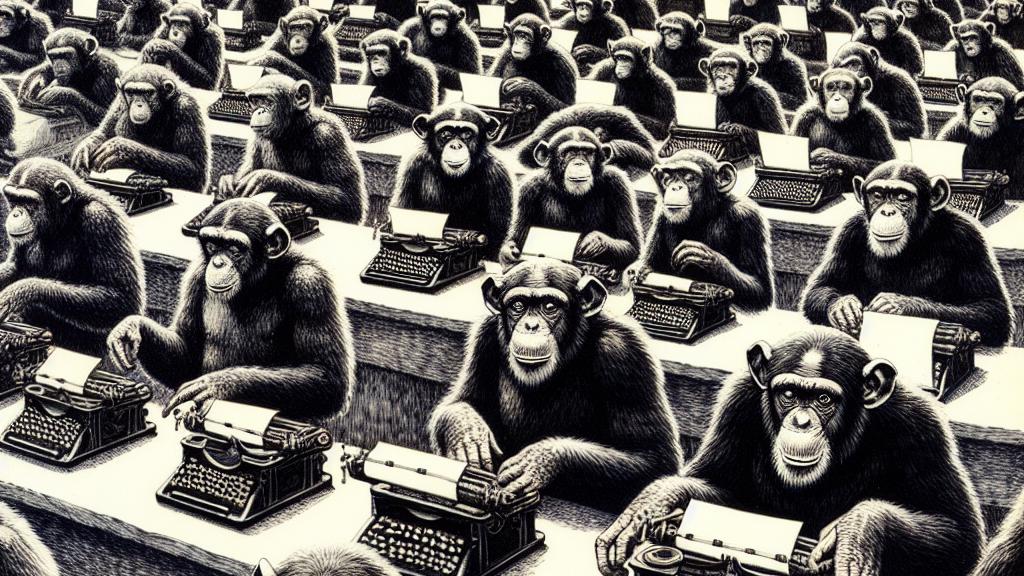Exploring Theories of Chimpanzee Literary Contributions, Dark Energy, and Weddell Seal Strategies
Overview
- Research reveals that chimpanzees are unlikely to create significant literary works.
- Dark energy, an elusive force, drives the accelerated expansion of the universe.
- In Antarctica, Weddell seals showcase remarkable strategies in their diving habits for effective foraging.

Chimpanzee Literary Capabilities
Picture this: an infinite number of monkeys diligently typing on typewriters, aiming to recreate Shakespeare's literary legacy. It sounds like a fun idea, but a thought-provoking study from the University of Technology in Sydney turns this whimsical notion on its head. Researchers calculated that even if a single monkey typed continuously for an eternity, it would have only a 5% chance of randomly creating a simple word like 'bananas.' In fact, when accounting for the entire chimpanzee population—about 200,000 individuals—that chance diminishes to nearly zero for producing anything resembling a coherent Shakespearean line. This fascinating research not only invites curiosity about animal intelligence, but also underscores the limits of chimpanzees' creative potential, prompting us to rethink our assumptions regarding their capabilities.
The Enigma of Dark Energy
Let's shift our focus to the boundless cosmos, where dark energy reigns as one of the biggest enigmas in modern physics. Since its unexpected discovery in 1998, scientists have grappled with understanding its role in the universe's expansion. Initially, experts assumed that gravity would gradually slow the expansion; however, two groundbreaking studies revealed just the opposite: the universe is expanding at an accelerating rate! Researchers at the University of Michigan have recently delved deeper, examining the intriguing correlation between dark energy and black holes. Their findings suggest that as new black holes emerge, the density of dark energy might also increase, hinting at a possible connection between these cosmic phenomena. This evolving understanding fuels excitement in the scientific community, as astronomers unearth more about the complex interplay that shapes the universe, despite the shadows surrounding dark energy remaining largely unexplored.
Weddell Seals' Foraging Strategies
In the icy waters surrounding Antarctica, Weddell seals display a remarkable blend of cuteness and intelligence that captivates researchers and wildlife enthusiasts alike. A recent study from the Woods Hole Oceanographic Institution has revealed that these clever seals employ strategic diving techniques to enhance their foraging success. Rather than diving during the bright midday hours—when prey visibility is high—the seals opt to perform their most demanding dives earlier in the day. This strategy allows them to avoid the peak light conditions that drive many prey species deeper into the ocean, ultimately increasing their chances of a successful catch. By carefully timing their dives, Weddell seals not only exhibit impressive adaptability but also demonstrate an intricate understanding of their environment, solidifying their status as one of nature's master foragers.

Loading...